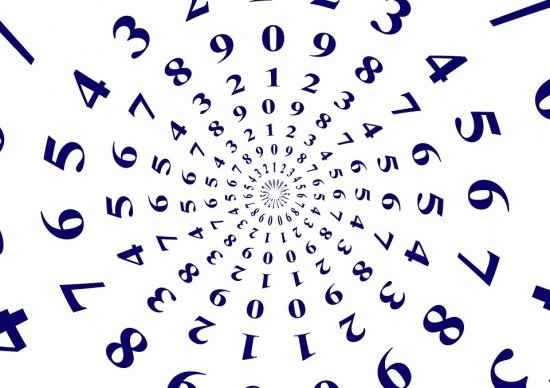You are a number, a really big number

Imagine if we could scan your entire body (including your brain) and store it in a computer in perfect resolution down to the Planck length. This is of course pretty much impossible, but hear me out. What would we end up with?
Like any other piece of data on a computer, we'd end up with one really really really huge number.
This number, like any number on a computer, could be represented with a bitstring - a sequence of 1s and 0s.
Now, imagine if instead of storing this bitstring in a computer, we simply store it "out there" in the physical world.
In other words, you are already a huge binary number stored in the physical universe itself, with bits being flipped or altered by the ongoing process of the laws of physics.
Let's hash you
Imagine if we apply a hash function to you (yes, to you - because you are a number), how long must the hash function be to represent you as a unique individual amongst all of mankind?
Well, the current human population on this planet is 7.5 billion - or 110111111000010001110101100000000 in binary.
That's 33 bits needed to avoid collisons - not a lot really is it?
Make it apply across time
Ok, 33 bits are all we need to uniquely represent you right now, but the population is growing and we also need to take into account the temporal aspect - that's 7.5 billion currently on the planet, but population is growing and in the future 33 bits may not be enough.
So let's add the temporal aspect. A 64-bit timestamp value is sufficient to account for any time+date in modern human history, so we'll use that - that means 97 bits are needed in total.
In other words, 97 bits of information is sufficient to uniquely identify you as an individual and will be until 15:30:08 UTC on Sunday, 4 December 292,277,026,596 using a 64-bit timestamp.
This leaves 159 bits left over if we were to hash you using SHA256 - enough to store a whole other you and still have space left over!
Get to the point Gareth!
From an information theoretic perspective, if we can identify you using a fixed-length bit string of only 97 bits, that means that the ultimate fundamental limit beyond which you can never ever be recovered is the point at which there's not even 97 bits of data unique to you.
Now tell me, how much entropy do you think there is in this image?
That's an electron microscope image of a rabbit's cerebral cortex after being vitrified and stored at cryogenic temperatures. I would bet there's a hell of a lot more unique entropy in here than just 97 bits.
Securely erasing a human mind
If you want to securely erase a human mind, is it really sufficient to carefully perfuse the brain with cryoprotectant solution and store it at cryogenic temperatures? It seems doing so will preserve a hell of a lot of entropy - too many bits to sanely count in fact.
This is the exact argument that convinced me personally to sign up for cryonics.

Well, people always say im irrational.
Congratulations @garethnelsonuk! You have received a personal award!
Click on the badge to view your own Board of Honor on SteemitBoard.
For more information about this award, click here
I think you are misusing the word "entropy".
How so?
I'm using it in the information theoretic sense, counting how many bits of information are represented within a particular piece of data (this is NOT the same as bits of data).
Congratulations @garethnelsonuk! You have completed some achievement on Steemit and have been rewarded with new badge(s) :
Click on any badge to view your own Board of Honor on SteemitBoard.
For more information about SteemitBoard, click here
If you no longer want to receive notifications, reply to this comment with the word
STOP